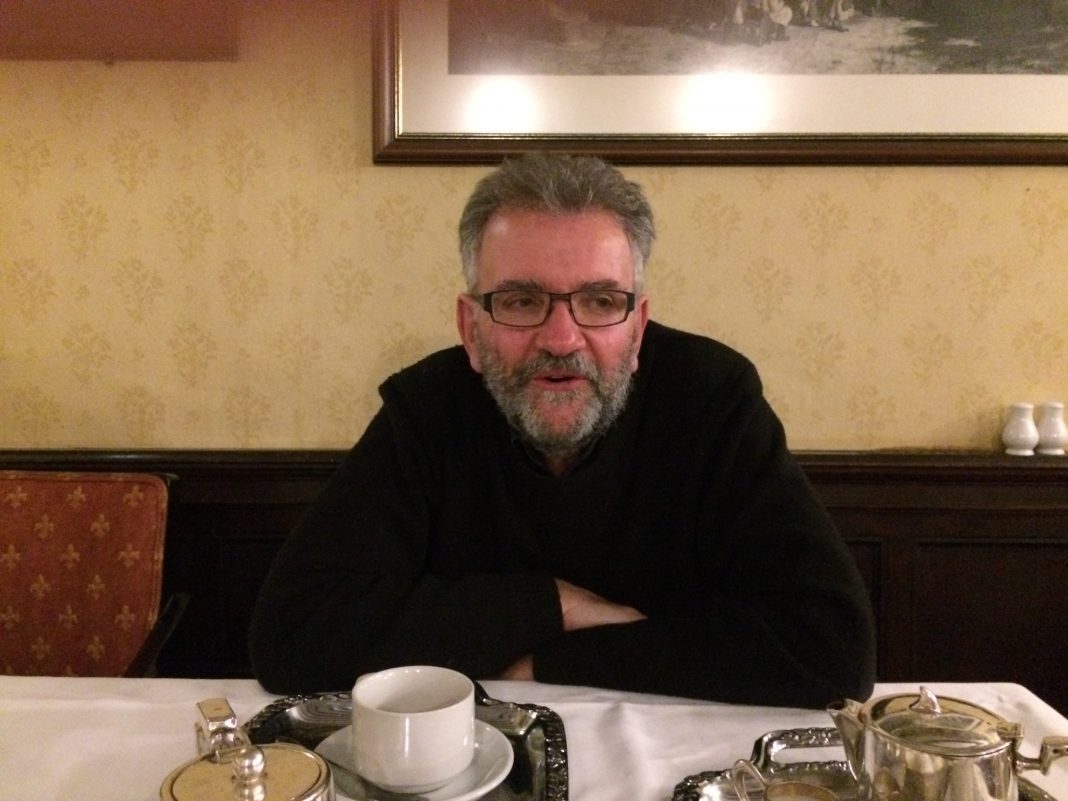Leader of Hastings Council for the last few years, the Labour candidate Peter Chowney is a familiar name to many in Hastings, but perhaps a little less well known in Rye despite reducing Amber Rudd’s majority from a little under 5,000 to a nail-biting 346 in the 2017 election.
A St Leonards resident for just over 20 years, he had previously served on Hackney Council, which was clearly a less than happy experience and he arrived in Hastings determined never to serve on a council again. However that decision did not last long and he was soon recruited by the local Labour Party to join Hastings Borough Council and has been leader since May 2015.
Originally a member of the Ecology Party, he moved to Labour after witnessing at first hand activities that he felt were corrupt in the pharmaceutical industry (bribes to pass substandard products, although unlikely to happen today) where he was working at the time.
Asked whereabouts in Labour he stood, he would in the past have described himself as on the left, but with the leftward movement of the party he reckons he is now closer to the centre. I reminded him of a tweet on his Twitter account at the time of the Labour Party NEC elections advising members to vote only for Momentum members, but he insisted he had no knowledge of this, explaining that there were others who also had access to his account. He is not a member of Momentum, he told me, but he is supported by them.
So what does he think of his leader? Broadly, he replied, he is in agreement with Mr Corbyn’s aims and ambitions. He did admit though that the four-day week was purely aspirational at this stage, and a lot more thought needed to go into how that would work. Monopolies though, Openreach being an example singled out in the Labour manifesto, were a different matter and any area where a monopoly existed should be taken in to public ownership.
Moving on, I asked him about Brexit – where did he stand? He voted remain in the referendum and is now strongly in favour of a second referendum, a view he has held from well before it became official Labour policy.
And as a remainer in a constituency that voted leave? He is unfazed by this. Most people, he argues, have made up their minds already about this, but he is campaigning as a remainer and will continue to do so in any referendum under a Labour government.
A short while ago there was a report that he had promised to encourage development of every square inch of available land. Was this still his policy and would it apply to Rye as well as Hastings?
Backpedalling a bit, he accepted that new housing developments and where to put them presented something of a quandary with so few brown field sites available and it was inevitable that some green sites would be need to cope with the desperate housing shortage in the area, both in Hastings and Rye. There would, though, be green areas which, for historic and other reasons, could not be touched.
This brought up the question of second homes. These were a concern in Hastings as well as Rye with a number left empty for the majority of the time and maybe some form of tax or the equivalent might at some stage be appropriate.
What was he most proud of during his time as council leader?
After some thought he suggested that first, The Coastal Space programme, which was a successful joint project with a housing association to acquire and refurbish a large number of rundown properties for social housing. The second was Hastings pier. To acquire and fund the work on it was an extremely complicated business and after it was completed and the pier re-opened, to much acclaim, it never occurred to anyone that the trust into whose hands it had been put, could be put into the hands of a receiver and the pier sold to a new private owner.
Finally transport, we all know of the problems caused by the lack of investment in this area, but what would he suggest?
First, buses: there needs to be a better local transport system, buses weren’t cheap and perhaps a publicly owned bus service in competition with the existing companies would result in both more, and cheaper transport. As for rail, the Marshlink is in desperate need of upgrading, even without the addition of HS1, and it needs to be looked at as a social requirement and not as a business case where there will necessarily be an expected return on the money spent on the upgrade.
Transport for the South East, under the chairmanship of East Sussex County Council leader Keith Glazier, is examining the possibility of a sustainable transport system integrated over the whole area, something he says he has advocated for a long time.
Image Credits: John Minter .




Mr Chowney features heavily in this report.
https://danylouise.wordpress.com/2019/11/25/antisemitism-in-hastings-rye-clp-summary/